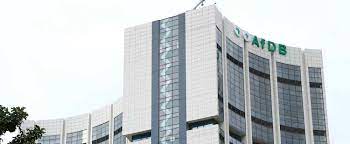The Board of Directors of African Development Bank (AfDB) announced on Tuesday that a $210 million loan has been approved for Nigeria’s Special Agro-Industrial Processing Zone, which is aimed at boosting the agricultural sector. The loan consists of an AfDB loan of $160m and an Africa Growing Together Fund loan of $50m.
According to AFDB’s statement, the loan could impact the lives of millions of people in Africa’s most populous country.
It said, “The loan will co-finance Phase 1 of the Nigeria Special Agro-Industrial Processing Zone Programme. The programme will help to unlock Nigeria’s agriculture sector potential. It will promote industrialisation through the development of strategic crops and livestock.”
Phase 1 of the project would target seven states and the Federal Capital Territory, augmenting certain value chain commodities, namely Cross River (cocoa, rice and cassava), Imo (beef and dairy livestock), Kaduna (tomato, maize and ginger), Kano (rice, tomato, groundnuts and sesame oil), Kwara (livestock), Ogun (cassava, rice, poultry and fisheries), Oyo (cassava, soybean, rice), and FCT (beef and dairy livestock).
READ ALSO: Loan Default: UBA Takes Over AEDC
The project is expected to support Nigeria’s efforts to raise agricultural productivity, promote investment, create wealth and jobs, and transform rural areas into corridors of economic prosperity.
The AfDB further stated that the first phase will be implemented with co-financing from other partners in the amount of $538.05 million and the Special Agro-Industrial Processing Zones Programme is expected to bring economic infrastructure to rural areas of high agricultural potential.
“These zones will attract private agro-industrialist and entrepreneur investment, contribute to Nigeria’s economic and social development, and stem rural-to-urban migration. The project areas account for 19 per cent of Nigeria’s total landmass and will benefit 50.4 million people,” it said.
AfDB said the states where the first phase of the programme would be implemented were selected based on a readiness criterion and the need to ensure geographical balance across the country’s six geopolitical zones.
AfDB’s President, Dr Akinwumi Adesina, said, “This first phase of the programme is not government-driven. It is government-enabled and private sector-led. That is the critical way in which you have a structural transformation of agriculture.
“It is impressive to see a strong commitment from the Nigerian government – a very strong commitment from the Nigerian Minister of Finance and from all of the state governments because they have to give the land, they make sure that all the regulations and incentives are provided.”

